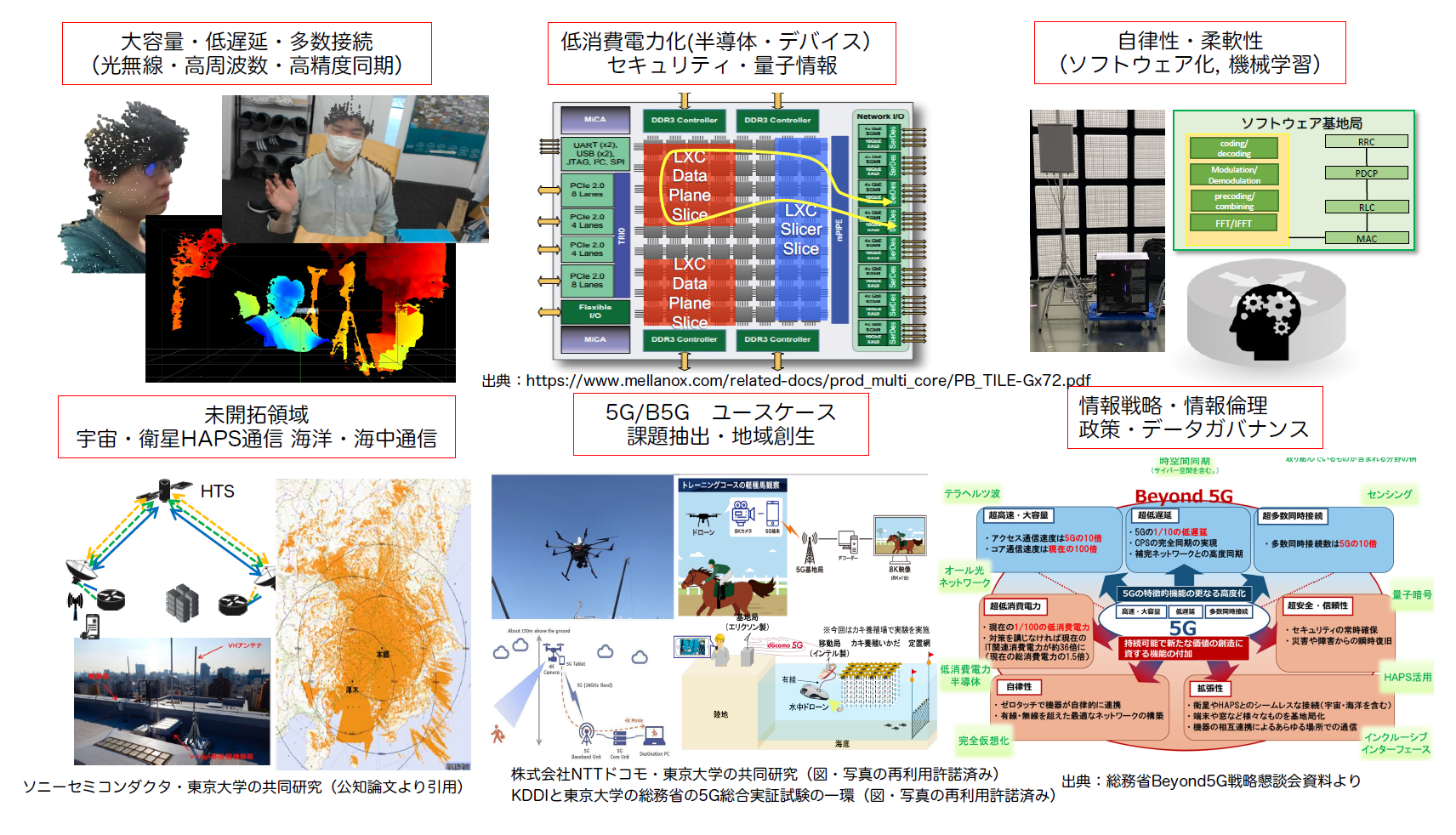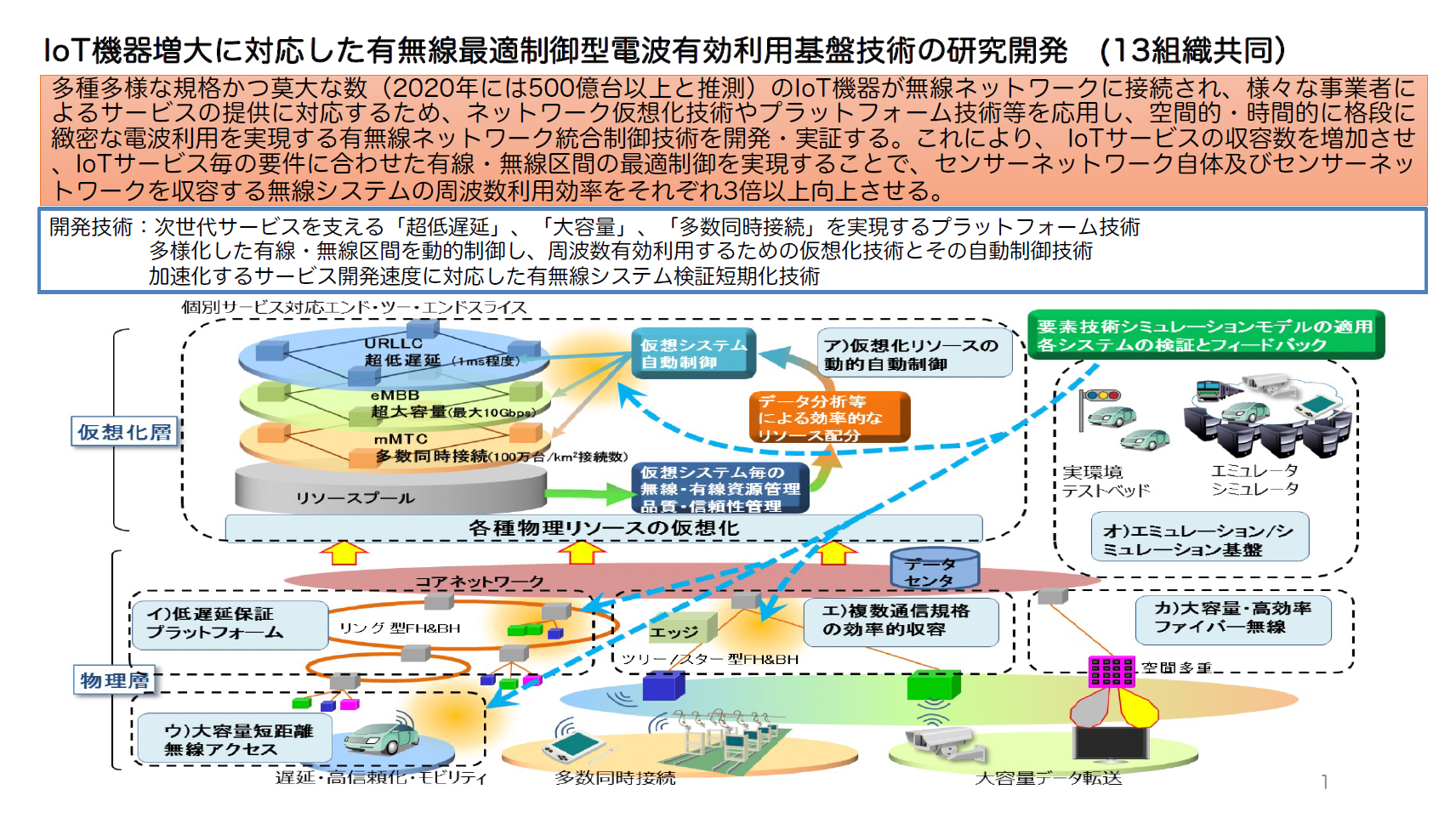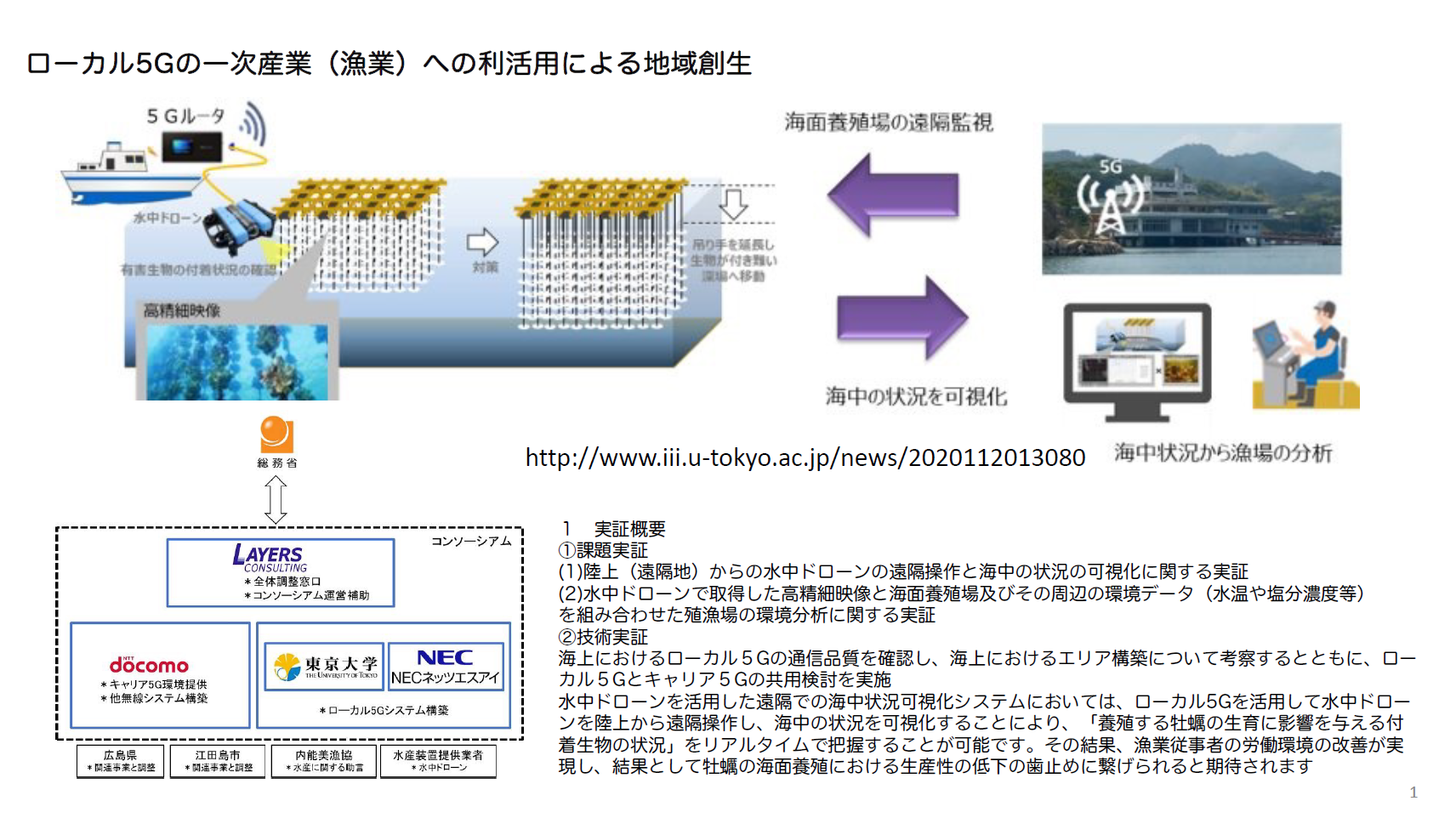Faculty

Design of Advanced Knowledge
NAKAO Akihiro
- Position
- Prof.
- Affiliation
- Department of Systems Innovation, Faculty of Engineering, The University of Tokyo
Department of Technology Management for Innovation, Faculty of Engineering, The University of Tokyo
- Keyword
- Next Generation Cyber Infrastructure, Beyond5G, 5G・Local5G, Super Intelligent Networks, Regional Revitalization
- nakao(at)nakao-lab.org※Please replace (at) with @ and send mail.
Creation of next-generation cyber infrastructure supporting future society



We conduct research and development of information infrastructure technology and applied technology (VR / AR / MR, remote monitoring control, autonomous cooperative control, etc.) of Beyond 5G aiming for realization around 2030 in the future. In addition to further improving communication quality such as large capacity, low latency, and massive machine type communications that are the characteristics of 5th generation mobile communication (5G), we carry out research and development of ultra-low power consumption of information communication, dramatical improvement in safety and reliability, autonomy of predicting and automatically repairing disruptions by machine learning and AI, and expandability to undeveloped areas such as non-terrestrial and oceanic telecommunications. In addition, by making full use of "democratization of information communication" such as in Local 5G, in which general businesses obtain radio frequency band licenses, customize information communications to solve social issues, and conduct research and development of next-generation cyber infrastructure driven from social issues and "bottom-up requirements and specifications".
Construction of flexible cyber infrastructure by softwarizationWe research on "network virtualization technology" that integrates information science and communication engineering and allows many communication functions to coexist independently, "network softwarization" that configures network devices with software such as SDN that realizes centralized control and NFV that builds functions on virtual machines, and “network slicing” that divides programmable resources such as bandwidth, calculation, and storage resources that build communication infrastructure into independent sets called "slices" using virtualization technology, and executes the implemented network functions without interference with each other. In addition, we conduct research on "super-intelligence networks” as an application, where a telecommunication network autonomously cooperates with “zero touch” beyond human intelligence and experience, builds an optimal network converging wired and wireless, and automatically detects and predicts failures.
Regional revitalization utilizing the next-geneartion cyber infrastructureWe conduct research on promotion of regional revitalization by collecting and analyzing huge amounts of real-time data by making full use of 5G / local 5G with the characteristics of large capacity, low latency, and massive machine type communications, and by means of IoT / AI / machine learning. We conclude a social cooperation agreement with the region, accelerate technical exchanges and academic exchanges related to informatics, information communication technology, and use the region as a field for demonstration experiments of information communication technology to accelerate research that contributes to industrial promotion and resolution of regional issues. For example, we will promote the latest information communication application services such as remote monitoring / remote control/ remote sensing, environmental sensing using 5G / IoT, DX (digital transformation) of the primary industry, and data utilization that makes full use of machine learning and promote economic development by resolving regional challenges, promoting industry, and creating new value.





